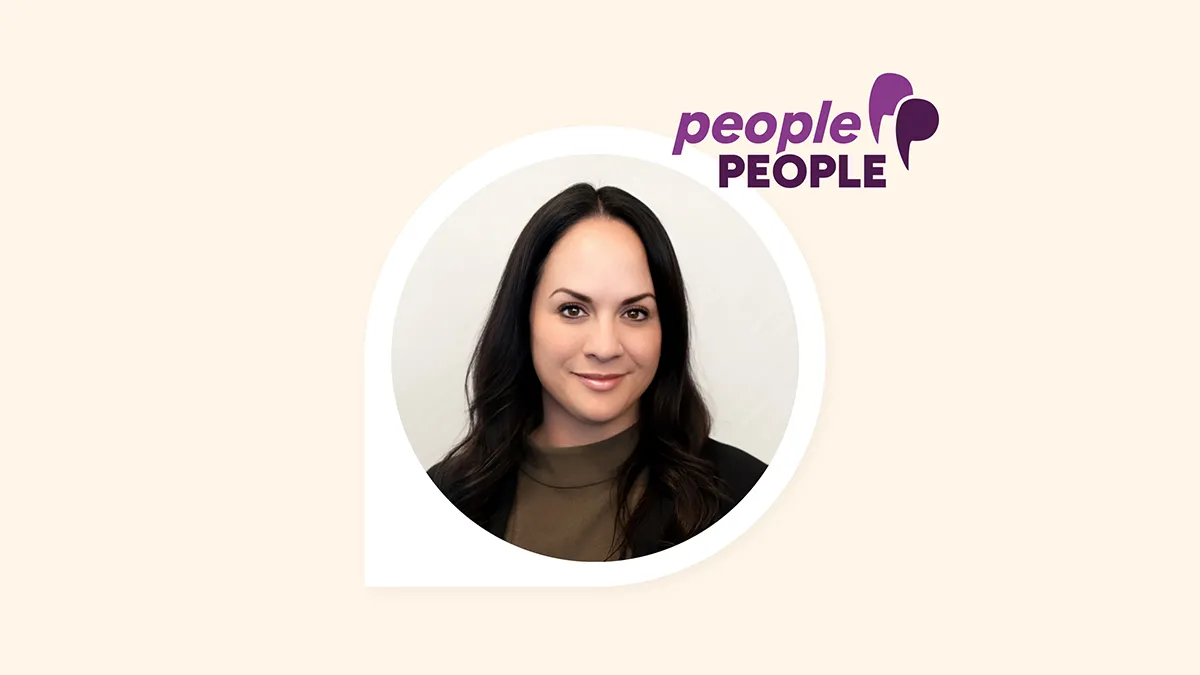Building a Talent Acquisition Career Through Taking Chances, Sales Savvy, and the Human Touch
People People
May 31, 2023
Margaux Morgante
X min
People People
May 31, 2023
Margaux Morgante
X min

Starting a career in human resources can come with surprises and unexpected opportunities.
For Niki Murphy, a Talent Management leader at ABB, a technology leader in electrification and automation, it was a chance visit to an employment agency in Ireland that set her on a path toward a successful and rewarding career in human resources management. While looking for a position in accounts payable, she was offered a recruitment role that opened up a world of possibilities.
An early surprise for Niki? The financial opportunities and career possibilities in recruitment. But for her, the adventure of finding the perfect candidate and negotiating contracts was only part of the appeal. It was the realization that she was impacting people’s lives and livelihoods that was truly motivating.
We sat down with Niki to learn more about her career and what’s on her mind in today’s fast-changing world of work.
First and foremost, you need to be extremely people-oriented. You need to be comfortable having conversations about anything with candidates and clients left, right and center. I think authenticity is also really important.
You do need to be a good salesperson too. The reality is that talent acquisition is, in many ways, a sales role. You need to listen to your clients to understand what they need. All day you’re selling the company to candidates – you need to know the values, the culture, the team, and the people.
At the same time, there’s a huge element of creativity and branding involved, so it’s a position that requires a lot of adaptability and different skill sets.
But, at the root of it is a people function; you need that motivation to work with people and help them succeed.
After polling staff, our company has taken a hybrid approach. Some wanted remote, some wanted hybrid, and a few wanted full-time in-office. So, we rented out some of the floors at our beautiful Montreal campus and implemented a desk hoteling approach with what we held onto.
Office hoteling, otherwise known as desk hoteling or simply ‘hoteling’, is a flexible way of reserving a desk or room in your workplace for a set period of time. As the name suggests, hoteling operates in the same way as an actual hotel. You make a reservation, you check-in, you complete your stay, you check-out. (Envoy)
But that means the number of people that can come into the office is limited. So, we have different challenges now. At first, it was, “how do we fill the space?” And “is it worth us keeping this space because it costs a lot of money for the organization?“ Now, it’s “how do we cater to the crowds of people that want to come back in?” I don’t think that anybody has found the perfect recipe for it. Studies I’ve read show that the productivity of people working from home spikes, but the engagement drops, and then the flip side is, if people come into the office, the engagement is through the roof, but their productivity drops.
So that’s why I think the hybrid model is probably best and is here to stay. We need human interaction and time to build relationships with people.
There are a few things that I’ve done over the years that have had a big impact.
The first that comes to mind is spearheading an internal mobility program – that, for me, was probably one of my most significant career achievement.
Internal mobility is the movement of employees (vertically and laterally) to new career and development opportunities within the same organization. (AIHR)
My company was focused on retaining talent; they understood the time and effort required to attract talent, given the scarcity in the market, and realized that once people were through the door, they had to keep them. It’s simply the most cost-efficient strategy. You have people at the peak of their efficiency in terms of company knowledge – it costs a lot to start over.
My colleague and I led the charge, despite this being the first time I had taken on an initiative like this. We set out to change the culture and mentality of our company when it came to internal mobility. The board approved our plan, and within a year, we generated so much interest and adoption that the program took us from a 19% internal mobility rate to 31%, which is considered best in class.
This is something that I continue to push on my teams today – the importance of considering your internal talent first.
I co-lead the Diversity and Inclusion Council at ABB, which is something that’s near and dear to my heart. It always has been, for that matter. We are working to have an impact by creating a more inclusive and diverse workplace.
Along with another leader, we put the council in place with four distinct priorities:
We always want to hire the best person possible for any role, regardless of gender, ethnicity, ability etc., and that’s a promise that I’ve always made to the organization. However, we want to create more opportunities for diverse people to be seen and heard in the interview process. I’ve asked my team to, at a minimum, strive to have an underrepresented group meet the hiring manager – that’s a commitment we’ve made.
I walk the talk on my own team too. Candidates need to see themselves in the people interviewing them, which means diversity on our talent acquisition team, the gatekeepers of our hiring, is critical.
This means working with external groups to support D&I at a grassroots level. One way we do this is by working with programs for girls in STEM, starting as young as the High School level.
We’re committed to a minimum of four events annually focused on topics related to D&I. Last year, a big focus for us was unconscious bias; this year, the focus is on the LGBTQ2S+ community. We want to take a stand and demonstrate that we are an inclusive organization.
This pillar is about internal visibility and sharing the stories of our colleagues to build empathy and understanding. It's about creating awareness.
That's what we're focusing on. It's grassroots and simple; hopefully, in the years to come, it will progress into something even bigger and better.
One challenge is the speed at which things are changing – it can be extremely overwhelming. I think people can get intimidated by the speed at which business strategies change. The world of HR is being flipped on its head.
Another big shift in HR is the prevalence of mental health conversations. Mental health concerns have spiked since the pandemic, and people are silent about it. The challenge is you don’t always see people suffering if they work remotely. So, it needs to be very clear, simple, and easy for them to access resources to help them. It needs to be a dialogue that’s easy and safe for people. HR leaders need to train managers on how to have those conversations. I think we’ll see a lot of HR positions created because of this in the future.
Another one is talent. Talent is scarce right now. For example, Canada has over 1 million open positions, and we don’t have enough people to fill the roles. Along with that comes talent retention. People are being poached left and right because of how accessible they are through technology like LinkedIn. They don’t even need to look for a job. The jobs come to them. We need to create an engaging workplace, and that’s in the culture. It’s a change that needs to happen – it’s a necessity.
Companies need to rethink their talent strategy. And there’s not just one answer to that. What people need to do is stop the knee-jerk reaction to resignations. Instead of immediately replacing the person leaving, we need to take a second and figure out, “Is there a way to optimize how we’re doing things? Is there technology that exists that would allow us to rethink and redesign the function that they had? Can it be absorbed elsewhere without overworking the current team? It’s about redesigning.
And that’s change management.
You need to coach your managers on how to do that and allow everyone the space to be creative and to provide their ideas.
Other opportunities include international recruitment and tapping into underserved labour markets, such as people who are neurodistinct, have physical impairments or disabilities, veterans etc.
I’m also cautiously excited about AI, and if and how it will revolutionize our world. I’m curious about how we can use tools like ChatGPT. I think the concept of AI, like being able to do psychometric assessments through video, is fascinating; I’m curious to see where we’ll be in 20 years. What this is all going to look like. I don’t think the human elements are ever going to leave. But I’m pretty excited to see where it’s going.
Thank you, Niki, for sitting down with us and sharing your experience and knowledge!
Know an amazing HR Leader you think we should feature? Send us a note at marketing@kudos.com

A newsletter with the best resources for HR professionals.


Learn the 5 pillars of engagement required to keep employees connected and build an exceptional culture.
Get Your Guide